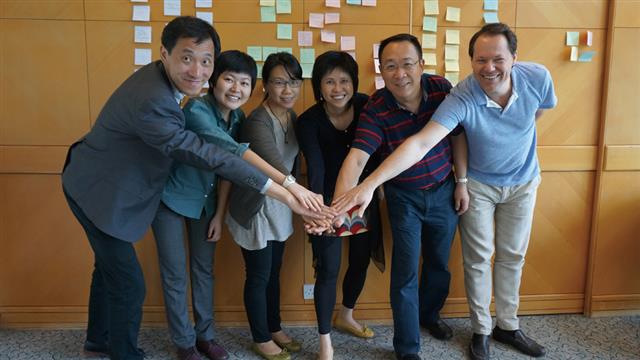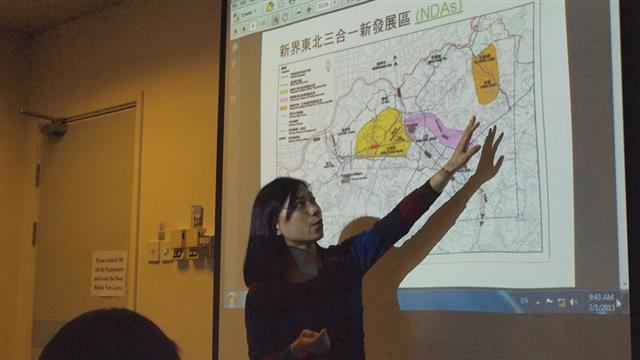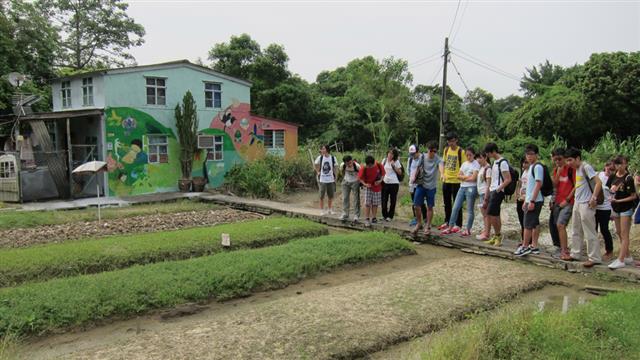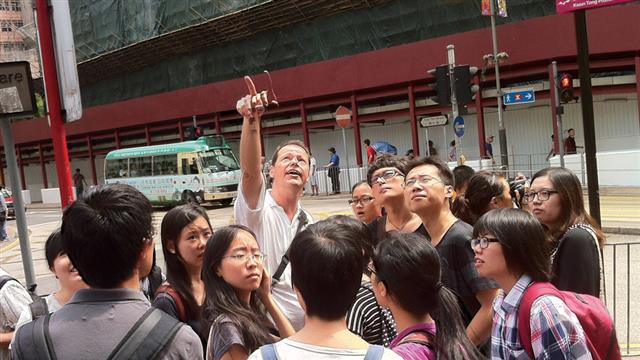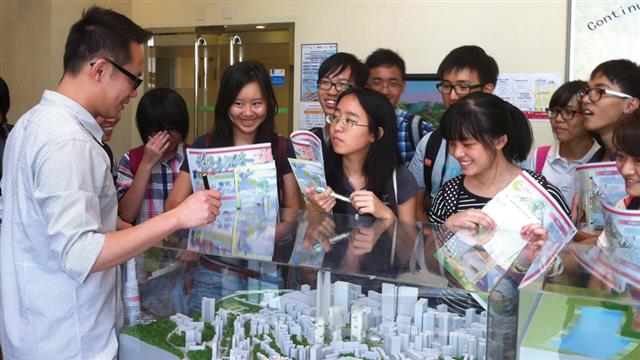In Shakespeare's Coriolanus, Sicinius said, 'What is the city but the people?' And the citizens answered, 'True, the people are the city.' At the very core of studying a city are the complicated issues closely related to its inhabitants.
Hong Kong underwent rapid urban growth in recent years. The government claimed that these could improve people's livelihood in the long run. However, urbanization has its drawbacks and may cause conflict among people with different interests especially before it bears fruit. The North East New Territories Development Areas project might upset the equilibrium between urban and village life; the building of the Guangzhou-Shenzhen Hong Kong Express Rail Link led to the land resumption of Choi Yuen Tsuen where the villagers had depended on farming for their livelihood over the years; the Central Reclamation Project led to the demolition and relocation of Queen's Pier; the Kwun Tong renewal plan resulted in the soaring price of real estate…. All these problems can't be dealt with using knowledge from any single conventional discipline. University graduates who can give priority to the most important aspects in urban issues and iron out disputes among stakeholders will be most sought after in the future.
To study a city using a multidisciplinary and systemic approach, CUHK launched the urban studies under-graduate programme in 2012–13. It enables students to inquire into the nature and dynamics of cities through the theoretical perspectives of different schools of thoughts, application of skills and techniques for urban analysis, and the contextual learning of the world's best practices in sustainable urban development, planning and design. Prof. Ng Mee-kam, programme director and professor in the Department of Geography and Resource Management (GRM) put it this way, 'Urban studies is a way to search for a developmental pathway that enriches human lives and respects the environment.'
Jointly organized by GRM and the School of Architecture, the programme was born when both saw the needs of society and thought of designing a programme in the realm. Prof. Hendrik Tieben, associate professor in the School of Architecture, recalled, 'We had similar ideas at almost the same time. GRM was planning to submit a proposal to the University while we were thinking to set up an urban design master programme. We reached out to GRM and discussed the possibility of cooperation started from undergraduate level.'
They found they were a perfect match so they began to co-design the new programme from their perspectives. Prof. Chen Yongqin David, chairman of GRM, added that the programme is run under the Faculty of Social Science and housed at GRM. Apart from GRM which offers core courses on statistics and research methods, and some elective courses, other departments of the Faculty of Social Science and Faculty of Arts also provide elective courses on the politics of space, on urban sociology and on the history of Hong Kong, epitomizing the philosophy of multidisciplinary education.
Professor Ng explained the advantage of combining the strengths of the two parties, 'When analysing the development of a city, you can see only the urban appearance if you focus solely on the buildings and the environment. However, development is driven by many human and social factors, such as history, culture, economy and politics. By marrying the two, students can understand the urban form and what aspects they need to consider in order to reshape it. This is something Hong Kong really lacks when dealing with these issues.'
Talking about the programme's features, Professor Ng emphasized that it integrates different knowledge domains instead of just offering the existing courses of the GRM and the School of Architecture. The latter approach may not enable students to acquire integrative thinking. In this connection, most of the courses are specifically designed according to the programme's aims. They include Urban Sustainability, Urban Design and Place Making. Another highlight is its stress on sustainability. On the whole, it hopes to inspire students to think from different perspectives and come up with win-win solutions that will lead to improvement in living conditions.
A city is a dynamic social organism. To raise students' awareness of current affairs such as urban renewal, housing in new towns, as well as heritage preservation, the programme holds urban forums regularly, inviting scholars, urban planners, representatives of community organizations, government officials to share their views on different issues. For example, Mr. Li Cho-ming, senior town planner of the Planning Department, was invited to deliver a talk on the projects in the North East New Territories New Development Areas; Ms. Athena Wong, social worker of the Tin Shui Wai Community Development Alliance, also analysed urban problems in Tin Shui Wai, which is sometimes known as the 'City of Sadness'.
Students are also given many opportunities to reach out to the community. They explored the Kwun Tong Town Centre project spanning Yue Man Square and Mut Wah Street, visited the Urban Renewal Authority Kwun Tong Resource Centre and experienced the living condition of a vacated cage-home. Students also joined the Wan Chai Heritage Preservation Tour organized by the Hong Kong House of Stories. They went to the North East New Territories Development Areas to learn about the concerns of local farmers and the land-banking activities by the developers.
Admission is limited to 20 in each cohort and all those admitted had been subject to a rigorous interview. Professor Ng said, there are no specific requirements on Hong Kong Diploma of Secondary Education Examination subjects. Candidates who are full of curiosity, who like to keep asking questions, and are willing to go beyond their comfort zone to meet the challenges of urban development are suitable candidates.


